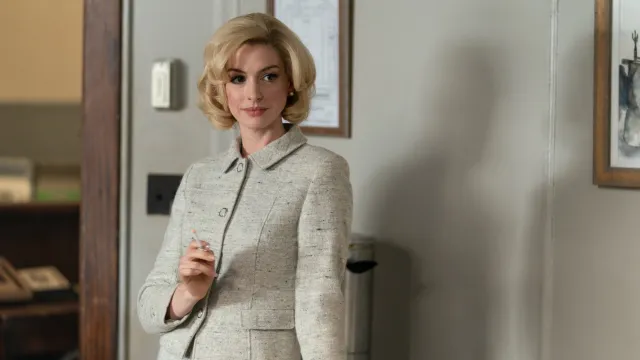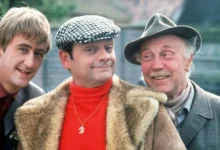Eileen’s critique: Anne Hathaway channels Hitchcock in this gripping psychosexual thriller
This rendition of Ottessa Moshfegh’s book isn't just about suppression; it's rather about something edgier, more covetous, and more perilous.


If you’re familiar with filmmaker William Oldroyd’s earlier work, particularly the intricately detailed and provocatively twisted ‘Lady Macbeth’ featuring Florence Pugh before her rise to fame, you might recognise the thematic fascinations and motifs that captivate the director. ‘Lady Macbeth’ was itself a rich tapestry exploring female desire, ensnared within the confines of patriarchal dominance.
Now, inspired by Ottessa Mosfegh’s 2015 novel and with Mosfegh contributing to the screenplay, ‘Eileen’ unfolds in the bleak midwinter of 1960s Massachusetts. The story orbits around its unassuming lead, Eileen (portrayed by Thomasin McKenzie, acclaimed for her role in Debra Granik’s powerful father-daughter drama ‘Leave No Trace’), a young woman quietly employed as a secretary in a local prison. Despite enduring the verbal abuse of her alcoholic father (a compelling performance by Shea Wigham, known for his portrayal of rugged, troubled characters), Eileen maintains an intriguing loyalty to him despite his flaws.


Life for Eileen is rather mundane, navigating an existence where she, portrayed as an increasingly unreliable narrator prone to flights of fancy in the novel, feels both bored and constrained. However, everything changes when Rebecca, a new prison psychologist portrayed with chic sensuality by Anne Hathaway, arrives on the scene. Rebecca becomes a captivating source of intrigue and sensuality in the workplace, stirring something dormant within Eileen.
As Eileen and Rebecca strike up a friendship that tiptoes on the edge of secrecy and affection, there’s an evident yearning in Eileen, brilliantly portrayed by Mackenzie, who appears younger than her years, especially when she gazes at Hathaway. Yet, this narrative isn’t just about suppressed queer desires; it’s more complex, delving into envy, unease, and danger.
Rebecca, with her magnetism, hides a darker side, leaving a trail of destruction that Eileen begins to recognise even as she willingly falls deeper into this enigmatic woman’s spell. The film, with its restrained visuals and authentic period details, carries a captivating and fluid pace until Oldroyd disrupts it with jarring instances of violence and criminality.
It’s a twisty and unpredictable tale, fitting perfectly into Oldroyd’s portfolio of narratives exploring feminine fixation and madness. His adept filmmaking promises an intriguing future for his work.









